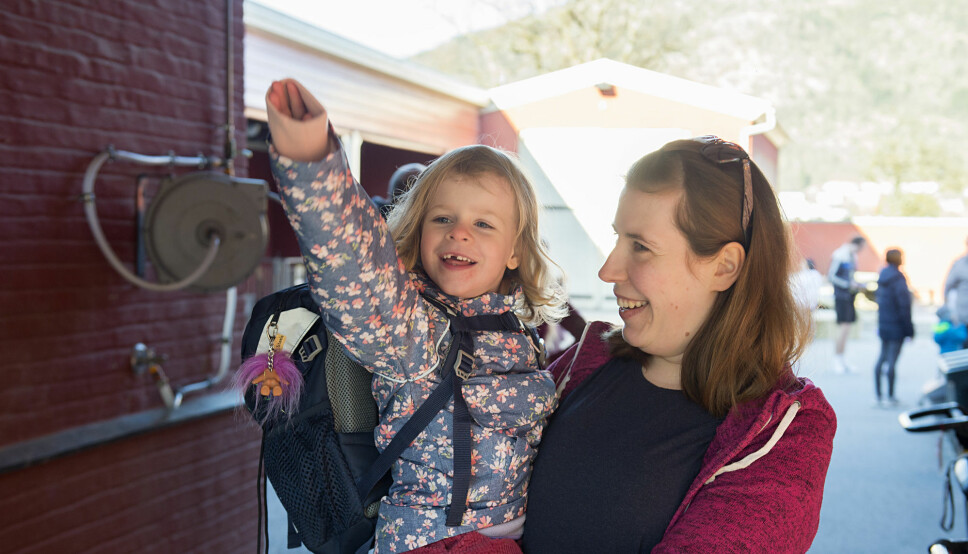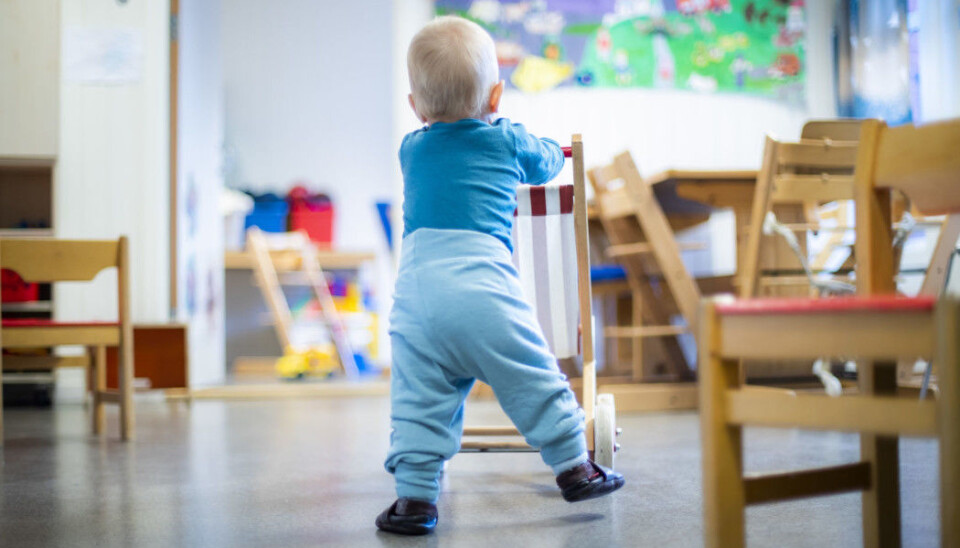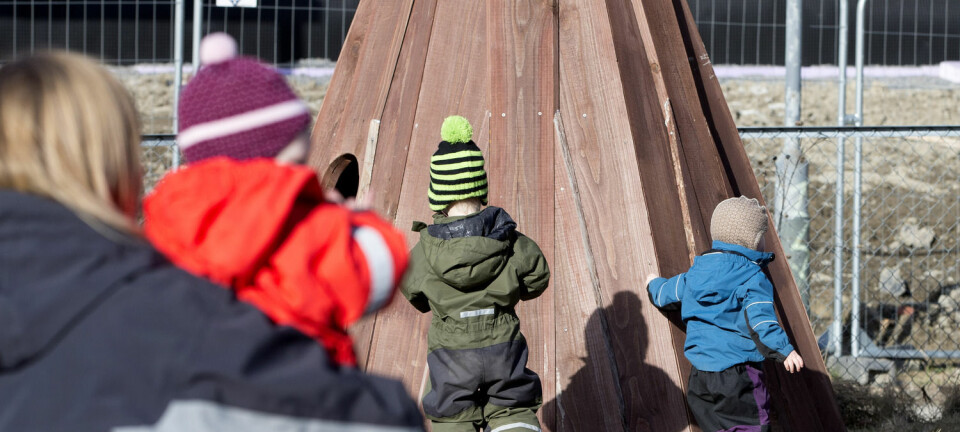
Employees at Norwegian kindergartens really enjoy their work
On average, these employees stay at the same workplace for nine years.
Almost all employees in Norwegian kindergartens like their job, a large Norwegian study shows. But that wasn’t always true. There was a time when many employees left after a short time.
What has made it so enjoyable — and popular — to work at a kindergarten?
100 percent feel valued by the children
More than 1700 employees in roughly 150 Norwegian kindergartens participated in the study.
When the researchers asked the kindergarten workers why they enjoyed their work, every single one answered that they felt valued by the children. And 99 per cent said they felt valued by their children's parents.
As many as 97 per cent said that they liked working in the kindergarten where they were employed. And about 90 per cent said they would have chosen the same profession again.
But only about half of kindergarten employees surveyed believed that society values the work they do.
And the least satisfying aspect of their job? Their salary.
Surprising findings
“The fact that kindergarten employees feel valued by both children and parents is an important explanation for why they say they enjoy their work,” says Cay Gjerustad. Gjerustad is a researcher at NIFU, the Nordic Institute for Studies in Innovation, Research and Education, which was behind the study.
Kindergarten employees also said they feel they have chosen the right profession.
“That certainly helps improve people’s enjoyment of their work,” Gjerustad said.
Slight differences between private and municipal
Ninety-two per cent of all children in Norway aged 1-5 have access to a place at kindergarten. About half of them go to a public kindergarten. Of the private kindergartens some are run by commercial enterprises that aim to make a profit, while some are run on an ideal non-profit basis.
The researchers found only slight differences between public and private kindergartens in this study. Employees in kindergartens run by ideal organisations were slightly more satisfied than others.
All types of employees also thought they had a good job, whether they were directors, educators or assistants.

Too many children
When asked to highlight something they thought of as negative, the kindergarten employees mentioned being responsible for groups consisting of too many children.
The requirement in Norway is that there must be a minimum of one employee per three children under the age of three and one employee per six children over the age of three. In practice however, this is impossible to maintain throughout the day as employees have to have breaks and start and end their day at different times in order for the kindergarden to be open for longer than a normal working day.
The workers also said they found it stressful if their colleagues had to be absent from work for whatever reason.
Stress was also named as a problem, especially among pedagogical leaders.
Impressive skills development
Gjerustad believes one of the study’s findings may explain why employee satisfaction is so high:
More than 90 per cent of the kindergarten employees had participated in one or more skills development programmes during the last 12 months.
“This is an impressively high number. It doesn’t take much of a leap of faith to see a link between the increase in expertise and the employees’ sense of satisfaction. These employees feel they are taken seriously, that their job is important,” Gjerustad said.
From shortage to surplus
Not so long ago, it was common for kindergarten teachers to leave their profession after a short time. As a result, there was a constant shortage of employees.
“Today, kindergarten teachers have stopped leaving their jobs,” said Lars Gulbrandsen, a long-time kindergarten researcher at Oslo Metropolitan University.
“We’ve gone from having a shortage of kindergarten teachers to having a surplus of them,” he said.
Gulbrandsen has studied how wages have changed over the years for kindergarten employees. Although many are still dissatisfied with their salaries, kindergarten employees in Norway have seen good pay increases in the past few years.
International results
The Norwegian study is part of a larger international study under the auspices of the OECD, where researchers in nine different countries (Chile, Denmark, Iceland, Israel, Japan, Korea, Norway, Turkey and Germany) have asked employees in kindergartens fairly similar questions.
A common finding has been that kindergarten employees in different countries are now satisfied with their jobs. Many feel valued by children and parents, but less valued by society — just like in Norway.
The international study also found that preschool workers overall — not just in Norway — reported that having too many children leads to more stress.
Skills development is also important in kindergartens in other countries. A total of 75 per cent of the participants in the nine countries surveyed answered that they had participated in skills development programmes over the last twelve months, with the most in South Korea and Norway.
In all the countries surveyed, kindergarten employees were dissatisfied with their salaries.
Translated by: Nancy Bazilchuk
References:
Cay Gjerustad m. fl: «Trivsel, læring og utvikling i barnehagen», NIFU-rapport 2020:10. The report (Norwegian).
Lars Gulbrandsen: «Barnehagelærere – Fra mangel til overskudd», tidsskriftet Søkelys på arbeidslivet, 2018 (Norwegian only)
OECD: «Providing Quality Early Childhood Education and Care Results from the Starting Strong Survey 2018».
———
Read the Norwegian version of this article on forskning.no
































